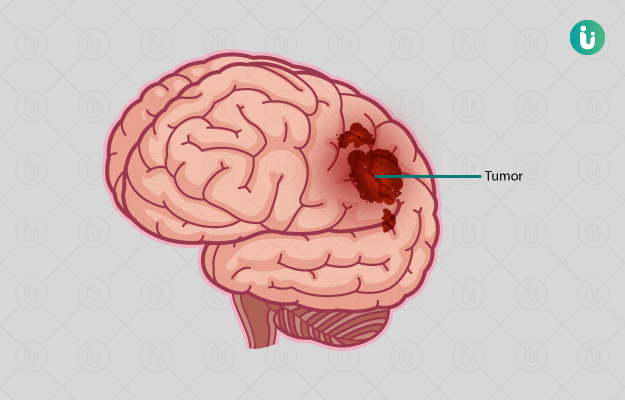What is brain cancer?
Brain cancer is an abnormal growth in the brain resulting from an uncontrolled division of cells. Not all brain tumours develop into brain cancer. Brain cancer can be of two types:
- Benign (noncancerous) – These are low grade (I or II), slow growing in nature and rarely recur after treatment.
- Malignant (cancerous) – These are high grade (III or IV), either originate in the brain and spread to other parts of the body (primary) or begin elsewhere in the body and spread to the brain (secondary).
The site and rate of growth of brain cancer determine its effect on the functions of the nervous system.
What are its main signs and symptoms?
The symptoms depend on the part of the brain affected. The following are a few symptoms of brain cancer:
- Headache often is the first symptom of brain tumour, and can be mild, severe, persistent or intermittent
- Difficulty in speaking
- Seizures
- Nausea, drowsiness and vomiting
- Increasing weakness or paralysis of one side of the body
- Mental problems like difficulty in remembering words
- Loss of balance
- Impaired vision, hearing, smell or taste
What are the main causes of brain cancer?
The causes of brain cancer are unknown and nonspecific. However, there are a few risk factors associated with brain cancer such as:
- Age – the risk of brain cancer increases with age.
- Exposure to high doses of radiation also increases the risk of brain cancer.
- Previous history of cancer in children puts them at a higher risk of developing brain cancer later in life. Adults with a history of leukaemia or non-Hodgkin lymphoma have a higher risk of developing brain cancer.
- A positive family history and some genetic conditions are also known to increase the risk of brain cancer.
How is it diagnosed and treated?
The doctor may confirm the diagnosis by checking the patient’s motor reflexes, muscle strength and sensory responses. Optic nerve may bulge due to the increased pressure in the brain by the tumour.
The main diagnostic tests for brain cancer are MRI and CT scans that typically follow a thorough eye exam and tests such as a slit-lamp eye examination.
Other tests that can be used are:
- Magnetic resonance spectroscopy
- PET scan
- Single-photon emission CT (SPECT) scan
- Lumbar puncture
Grading of the tumour is based on the extent of its growth. It indicates the size of the tumour and its spread in the body.
- Grade I and II are slow growing
- Grade III and IV are rapid growing
On the basis of the grade, the tumour is treated with:
- Steroids – to reduce inflammation around the tumour
- Surgery – to remove the tumour
- Radiotherapy – to further treat any remnant abnormal cells
- Chemotherapy- medications to kill the abnormal cells
Noncancerous tumours are successfully treated with a good recovery rate. In general, younger patients have a better prognosis.
Since brain cancers are rare, predicting the survival rates is difficult. Approximately 15% of people with brain cancer survive for 5 years or more after being diagnosed.

 Doctors for Brain Cancer
Doctors for Brain Cancer  OTC Medicines for Brain Cancer
OTC Medicines for Brain Cancer



















